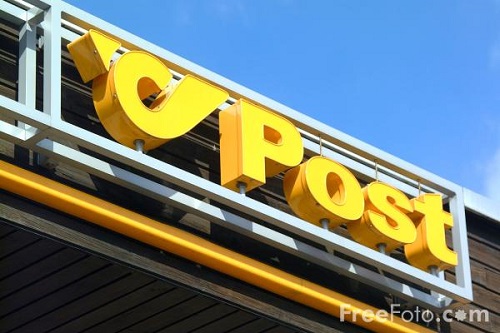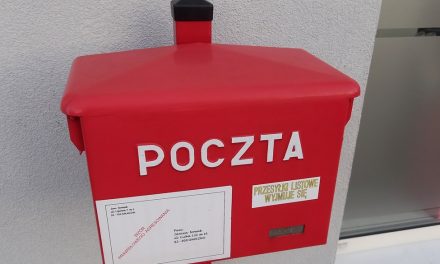
Report on Poczta Polska
Poczta Polska, the national mail operator, is the country's second largest employer with more than 100,0000 on its payroll. It's also a government darling, so much so that its legally protected monopoly on the most profitable segment of the traditional market will be maintained beyond the country's EU accession expected in May 2004.
All this is by no means enough to guarantee a bright future for the company. Despite the transition period granted by the EU, the liberalisation of the postal market will progress, while the rising popularity of the Internet as a means of communication and of financial transfers will shrink the market for traditional postal services.
"The most serious challenge for the future is to diversify our sources of revenue, as has happened with the national mail operators in EU countries," said Rados³aw Kazimierski of PP's promotion department. "We have an archaic structure at present with traditional mail services accounting for some 60% of revenue. This is not where the money will be in future."
By comparison, Deutsche Post derives just 34% of its revenue from traditional mail services, while logistics accounts for 26 financial services, 22% and the Internet, 18%.
Achieving a similar revenue structure is the goal PP set for itself in a strategy published last year. However, there remains a long way to go, as demonstrated by its failure to take the courier market by storm. The trumpeted Pocztex service managed to capture a mere 4% of the market, despite huge investment.
Olga Kozierowska of Masterlink, PP's more successful competitor on the courier market, attributes PP's failure to its inflexibility. It has only recently become a door-to-door service, as customers had been unhappy about having to trudge down to the post office to send their parcels. By the time PP decided to act, the damage had been done.
Success in this field is, however, vital for the company's future, since the most profitable services at present – letters and bill payments – will lose much of their significance as more and more people turn to the Internet. Moreover, PP's legally protected monopoly on the delivery of parcels weighing less than 1,000 grams is being dented, as the competition neatly sidesteps the restrictions by carrying "documents" rather than "correspondence."
PP's current predicament calls for vision, and its strategy hardly falls short on this account.
"It is an ambitious project, modern in its outlook and seeking to emulate the best practices in the sector," said Krzysztof Pniewski of Andersen Business Consulting. "The problem is that PP does not play in the same league as the global market leaders, such as the American, German or Swedish post offices. A lot has to be done before the company is ready to deal with such a challenge. Little has been done to change things to date, and now they are looking to a major overhaul in a relatively short time. Their ability to do so is limited, not necessarily by the lack of finance but of experience."
The strategy envisages PP's transformation into a holding with activities focused on four areas: traditional postal services, logistics, financial services and the Internet. Co-operation with market leaders is planned for specific projects, although no single strategic partner will be sought. A certain amount of wishful thinking may, however, be involved here, as the Swedish company Posten, when approached by the Business Journal, seemed to be surprised at the news that it had been named as a prospective PP partner in Internet services.
Pniewski agrees that breaking PP up is a way towards greater efficiency. "But I don't see how such a holding could be set up quickly," he said. In any case, the restructuring will have to wait until a new postal law is passed. It is hoped that the government will submit a proposal to parliament by the fourth quarter of this year.
Total expenditure on PP's transformation is projected at e951 million (z³. 4.1 billion). According to Kazimierski, the company can expect government support in issuing bonds valued at e348 million (z³. 1.5 billion). Loans will provide a further e255 million (z³. 1.1 billion), while the remainder is expected to be covered by cutting costs.
Reducing the employee payroll and selling some of PP's real estate holdings are two areas where savings could be made. Steps in this direction appear necessary anyway, as PP's current fixed costs account for 85% of its total costs. However, the process will be fraught with difficulties since PP, as a public utility, is expected to provide obligatory core services, irrespective of their economic value. With the government expecting PP to "play an important role in implementing regional policy and limiting the scope of social exclusion," room for workforce reduction is limited.
PP's ambitions are as huge as the obstacles that lie on the way to their realisation. A previous strategy for the company, commissioned from Cap Gemini Ernst & Young at a cost of $100,000, has, rumours have it, ended up at the bottom of the president's drawer. Its contents are among the best kept of PP's many secrets.
Liberalisation of the postal market
Poczta Polska will have its monopoly protected under the terms of an agreement on a transition period following EU accession. The government applied for the exemption after an eleventh-hour rethink that saw a change in its negotiating position on November 22 last year, just three weeks before the accession treaty was signed.
The transition agreement allows for PP to maintain its monopoly on the delivery of letters weighing less than 350 grams until the end of 2005 and 100 grams until the end of 2006.
Which is just as well for PP. "Had the limit been reduced to 50 grams today, PP would have lost €232 million (z³. 1 billion); we've still got a long way to go," said a PP source, who declined to be named.
Brand deficient
How long does it take to build a brand name? If the example of Poczta Polska is anything to go by, half a millennium may not be enough. In its promotional materials the national mail operator boasts of a history going back to 1558.
It seems strange, therefore, that PP is planning to spend around €232 million (z³. 1 billion) on taking over rival companies in order to – as the company's strategy document states – "build its market position on the basis of their brand names."
The first two takeovers are planned for this year. The deals are expected to give fresh momentum to PP's push for a larger share of the courier market, while the acquisition of a mailing company represents the first serious step towards establishing a position on the e-commerce market.
"If PP wants to build an image as a flexible company that is open to the customer's needs, buying other brands is a good idea," said Olga Kozierowska, head of PR at Masterlink Express. "The example of TPSA shows that sometimes even brilliant advertising campaigns may not be enough to rebuild customer confidence in a brand. Society's perceptions are very hard to change."
But this is what PP desperately needs to do. While figures on its service quality published by PP (see graph below) would suggest that there is no cause for concern, anecdotal evidence points to a different scenario.
One market analyst, who asked not to be named for fear of the strength of the PP lobby, told the Business Journal that the trouble with the company is that, "Its structure is like a rock: I don't mean reliable, I mean inflexible. It's corruption prone."
PP remains defiant in the face of the criticism. Rados³aw Kazimierski of PP's promotion department contends that "93.25% of our priority parcels are delivered on time. The figure is somewhat lower with economy parcels, but it's still around 90%. This is what the market regulator says. We provide a service better then the European average. The numbers speak for themselves."
Clearly, PP is not speaking loudly enough for people to take notice.












